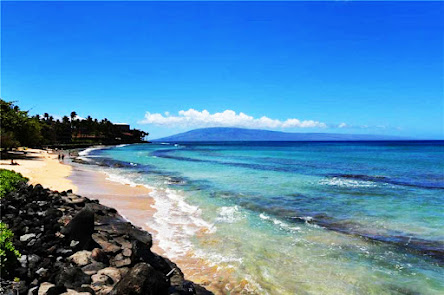Ililani Media | September 3, 2021
By Henry Curtis
Innergex subsidiary Kahana Solar proposed a 20 MW photovoltaic project, coupled with an 80 megawatt-hour Battery Energy Storage System located in the mauka Honokowai area on the island of Maui.
Maui Electric Company (MECO) signed a Power Purchase Agreement with Kahana Solar on September 3, 2020. The Consumer Advocate is a party by law. Kahana Solar and West Maui Preservation Association intervened.
West Maui Preservation Association was incorporated in 2004 with a mission statement of “preserving, protecting and restoring of natural and cultural environment of west Maui, and related educational activities.”
Each side has filed testimony, provided a list of witnesses, and indicated which opposing witnesses they wish to cross-examine.
The Public Utilities Commission will hold an evidentiary hearing virtually through Webex on September 15-15, 2021, from 9 a.m. to 4:30 p.m. each day.
West Maui Preservation Association (WMPA) Attorneys Ryan Hurley and Bianca Isaki filed a Motion on August 31, 2021 seeking to “Strike Kahana Solar, LLC’s Testimony and Exhibits Related to Economic Benefits.”
“If Kahana Solar does not plan on utilizing union labor for the construction of the Project, will it pay workers at least the prevailing wage within the meaning of Hawai’i Revised Statutes, Chapter 104, HRS? If not, why not?”
Kahana Solar gave an initial response on June 23, 2021.
“Under the binding contractual provisions of the PPA, Seller is not a licensed contractor, and Seller is not intending to self-perform the construction of the Project. Seller will not be executing a Memorandum of Agreement, but rather intends to select a qualified Hawaii licensed contractor to construct the Project.”
“Seller uses a selection and qualification process to solicit a qualified contractor for the project, which will include consideration of the proposed employment of qualified local residents by the contractor or its subcontractors in the construction of the Project. At this time, Seller has not selected a contractor for the Project.”
Kahana Solar gave a further explanation on July 27, 2021.
“Seller clarifies that it will hire a Hawaii-licensed Engineering, Procurement and Construction … contractor or a General Contractor … to construct the Project.
“The EPC/General contractor is expected to subcontract labor with the appropriate skills to complete the Project.
“At this time, Seller has not selected an EPC/General Contractor for the Project and therefore does not know whether they will or will not use HRS ch. 104 as a guide.
“It is Seller’s understanding that HRS ch. 104 applies to public projects or a construction contract between private persons if more than fifty per cent of the assignable square feet of a project is leased or assigned for use by the State, any county, or any agency of the State or any county, whether or not the property is privately owned. …
“Seller supports fair and appropriate wages for qualified labor for the construction of the Project and wage determination will be made by the EPC/General Contractor.”
Since the adoption of Integrated Resource Planning in the early 1990s, the Public Utilities Commission has stressed the importance of considering negative externalities, the environmental and cultural impacts that are not reflected in the price.
The Commission also defined external benefits to include environmental, cultural, and general economic benefits.
The Commission noted on July 9, 2020, in the HELCO-Hu Honua proceeding, “Arguably, any renewable project selected for Hawaii Island would provide economic stimulation and job creation, in that facility would need to be built, maintained, and operated.”
The International Brotherhood of Electrical Workers (IBEW) intervenes in various proceedings at the Public Utilities Commission, but not this proceeding. This might be the first time that a community group has argued strenuously that the applicant hasn`t adequately described positive economic labor externalities.
West Maui Preservation Association asserted, “Because the Commission will not require Innergex to respond to WMPA’s clarifying questions concerning alleged economic and community benefits of the project, WMPA seeks to have the legal determinations of this Commission applied fairly and consistently to all parties and prevent substantial prejudice to WMPA such that neither project proponents nor the Commission may rely on Innergex’s one-sided representation in assessing the project.”
“WMPA is entitled to cross-examine for a full and true disclosure of the facts and to present rebuttal evidence concerning Innergex’s representations of the project’s community and economic benefits.”
“To rule these issues irrelevant or immaterial as to WMPA but relevant and material as to other parties so as to deprive WMPA of its ability to conduct meaningful discovery is tantamount to denying WMPA its right to cross examine.”
“The full and true disclosure of facts surrounding the project includes whether and how Innergex has committed to ensuring a living wage and to supporting labor unions. Payment of a living wage and union membership are evidence of means through which various project externalities would be better accounted for.”
“To the extent Innergex defined `local` labor only as those who reside in Hawai‘i, there are greenhouse gas (GHG) emissions associated with flights and transportation. Additionally, workers not already housed in West Maui may draw on scarce affordable housing supplies or contribute, again, to GHG emissions associated with transportation.”
“For the foregoing reasons, WMPA seeks materials representing that the project’s employment practices will have economic and community benefits stricken from the record.”
The Public Utilities Commission allows anyone to file comments in Commission proceedings. Unless the Commission specifically asks for public comments, the filed comments are not part of the official record, and many entities believe that these comments play no role in decision-making.
WMPA filed another letter on September 1, 2020, insisting that the Commission take formal steps to identify what a public comment is, how they are treated, how notice is given, if the Commission has delegated its authority to someone else regarding the designation of public comments, and whether the public commenters can be cross-examined.
Original Post: http://www.ililani.media/2021/09/west-maui-preservation-association-is.html

